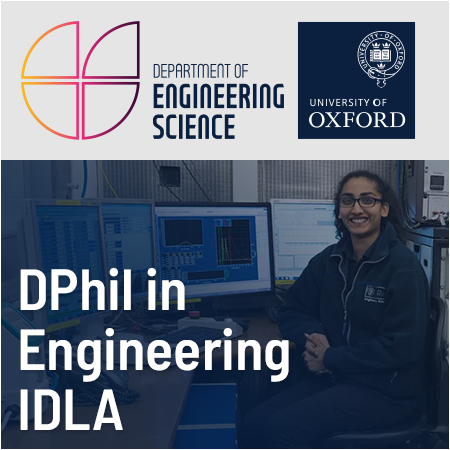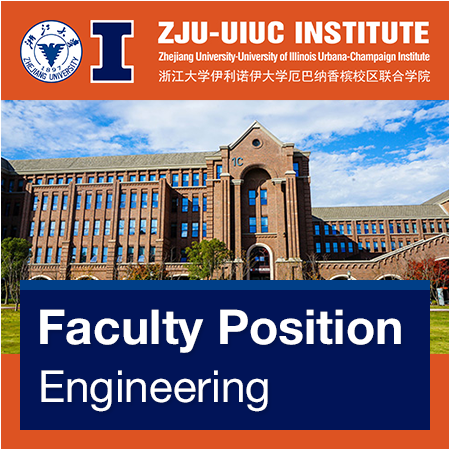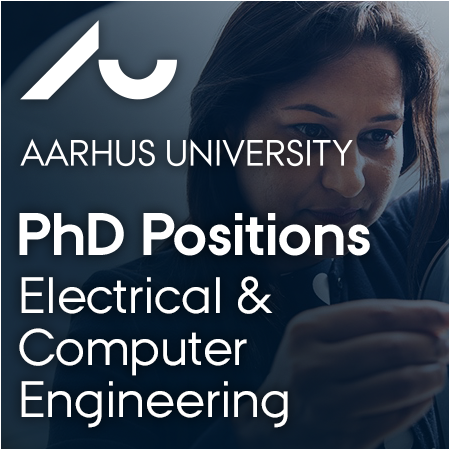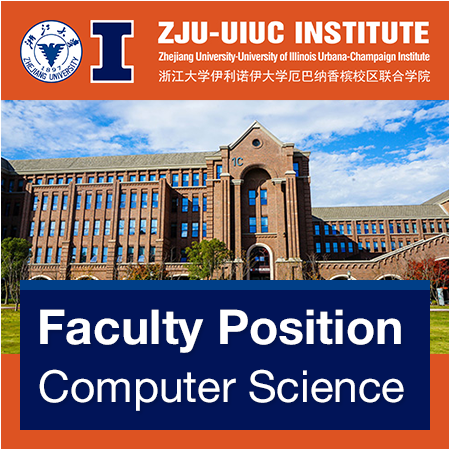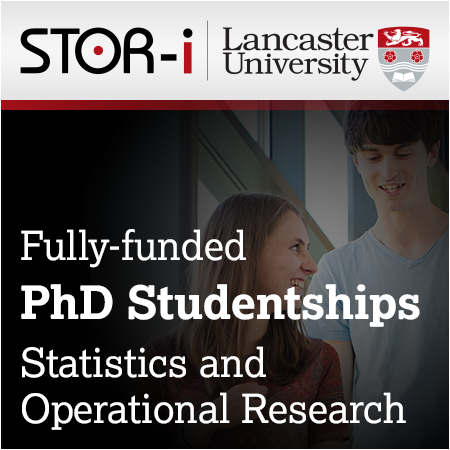Please start typing and select a location from the list
69 PhDs Found
Clear All
Computer Sciences
Engineering & Technology
Artificial Intelligence
Computer Science
Mechanical Engineering
Other Engineering
PhDs
£10,000 - £14,999
£15,000 - £19,999
£20,000 - £24,999
Search
Sort
The job you're looking for is no longer being advertised. Please see below for similar jobs.
69 PhDs Found
PhD Studentship: Machine Learning and Optimisation-Based Intelligent Substation Design in Cyber-Physical Power Systems
School of Engineering Scholarship
University of Warwick
Location:
Remote
Salary:
£20,780
Please refer to advert
Date Placed: 15 May
Closes
15 Jun
Computer Science, Engineering: Fully Funded PhD Studentship in AI-driven Non-Destructive Testing
Computer Science, Mechanical Engineering, Aerospace Engineering, Civil Engineering
Swansea University
Location:
Swansea
Salary:
£20,780
for 2025/26
Date Placed: 14 May
Closes
02 Jun
Computational Engineering: Fully Funded EPSRC Studentship-AI Accelerated Discontinuous Galerkin Solver for Boltzmann-BGK Equation for Rarefied, Hypersonic Flows
Computational Engineering; Gas dynamics; High-performance Computing
Swansea University
Location:
Swansea
Salary:
£20,780
for 2025/26
Date Placed: 14 May
Closes
02 Jun
PhD Studentship - Quantifying the Impact of Strategies to Achieve Net-Zero Aviation by 2050
Mechanical and Aerospace Engineering
The University of Manchester
Location:
Manchester
Salary:
£20,780
- please see advert
Date Placed: 13 May
Closes
13 Nov
PhD Studentship: Physical Interactions in Constrained Environments: Reasoning, Sensing, Manipulation and Consensus
EPSRC Centre for Doctoral Training in Robotics and Artificial Intelligence for Net Zero Centre (RAINZ)
The University of Manchester
Location:
Glasgow
Salary:
£20,780
Date Placed: 13 May
Closes
11 Jul
PhD Studentship: Multi-collaborative scouting and mapping with a team of highly mobile robots
EPSRC Centre for Doctoral Training in Robotics and Artificial Intelligence for Net Zero Centre (RAINZ)
The University of Manchester
Location:
Oxford
Salary:
£20,780
Date Placed: 13 May
Closes
11 Jul
PhD Studentship: AI-empowered Zero Touch Wireless Network Management for Reliable and Efficient Autonomous Robot Fleets
EPSRC Centre for Doctoral Training in Robotics and Artificial Intelligence for Net Zero Centre (RAINZ)
The University of Manchester
Location:
Glasgow
Salary:
£20,780
Date Placed: 13 May
Closes
11 Jul
PhD Studentship - Modelling and Simulation of Turbine Wheels Performance
Mechanical, Aerospace and Civil Engineering
The University of Manchester
Location:
Manchester
Salary:
£20,780
- please see advert
Date Placed: 13 May
Closes
30 Jun
PhD Studentship: Low-Power AI-Driven Resource Management for Enhancing Satellite Communication Link Reliability
EPSRC Centre for Doctoral Training in Robotics and Artificial Intelligence for Net Zero Centre (RAINZ)
The University of Manchester
Location:
Glasgow
Salary:
£20,780
Date Placed: 13 May
Closes
11 Jul
PhD Studentship: Design, Fabrication, and Control of a Soft Robotic Arm for a Legged Inspection Robot
EPSRC Centre for Doctoral Training in Robotics and Artificial Intelligence for Net Zero Centre (RAINZ)
The University of Manchester
Location:
Oxford
Salary:
£20,780
Date Placed: 13 May
Closes
11 Jul
PhD Studentship: Multi-robot Cyber-physical Systems for Solar Farm Health Monitoring and Maintenance
EPSRC Centre for Doctoral Training in Robotics and Artificial Intelligence for Net Zero Centre (RAINZ)
The University of Manchester
Location:
Glasgow
Salary:
£20,780
Date Placed: 13 May
Closes
11 Jul
PhD Studentship: Energy Efficient Composite Manufacturing
University of Warwick
Location:
Coventry, University of Warwick, Warwick
Salary:
£20,780
Date Placed: 12 May
Closes
30 Jun
PhD Studentship: Thermal Energy Decarbonisation of Large Industrial and Commercial Sites
University of Warwick
Location:
Coventry, University of Warwick, Warwick
Salary:
£20,780
Refer to advert
Date Placed: 08 May
Closes
31 Jul
PhD in Algorithmic Game Theory (Blockchain Incentives: Consensus and Fairness)
School of Computer Science and Electronic Engineering
University of Essex
Location:
Colchester
Salary:
£20,780
Date Placed: 08 May
Closes
30 May
PhD Studentship:Computation and Data Driven Design of Materials for Onboard Ammonia Cracking
Engineering
University of Nottingham
Location:
Nottingham
Salary:
£20,780
pa
Date Placed: 07 May
Closes
11 Jun
PhD Studentship: Whole-body loco-manipulation for robotic inspection of energy industry equipment
EPSRC Centre for Doctoral Training in Robotics and AI for Net Zero (RAINZ)
The University of Manchester
Location:
Manchester
Salary:
£20,780
20780
Date Placed: 07 May
Closes
11 Jul
PhD Studentship: Smart Robotic Systems for Autonomous Inspection - Enhancing Data Collection and Analysis
EPSRC Centre for Doctoral Training in Robotics and AI for Net Zero (RAINZ)
The University of Manchester
Location:
Manchester
Salary:
£20,780
20780
Date Placed: 07 May
Closes
11 Jul
PhD Studentship: Formalizing Software Reliability: Theoretical Foundations and Practical Methods
Computer Science
The University of Manchester
Location:
Manchester
Salary:
£20,780
Date Placed: 07 May
Closes
16 May
PhD Studentship: Verifying Human-GenAI Alignment via Statistical Methods
ESE
University of Exeter
Location:
Devon, Exeter
Salary:
From £19,237
annual tax-free stipend (pro-rata for part time) plus Home or International tuition fees
Date Placed: 07 May
Closes
03 Jun
PhD Studentship: Computational and ML Modelling of Low Temperature Plasmas PhD (CoFunded with Industry)
University of Exeter – Faculty of Environment, Science and Economy
University of Exeter
Location:
Exeter
Salary:
£19,237
Date Placed: 07 May
Closes
30 May
PhD Studentship - Profile the Killer Waves in the Ocean with Machine Learning
Mechanical, Aerospace and Civil Engineering
The University of Manchester
Location:
Manchester
Salary:
£20,780
- please see advert
Date Placed: 07 May
Closes
06 Nov
PhD Studentship - Large Language Model for System Software
Faculty of Engineering and Physical Sciences EPSRC Project Proposals 2025/26 - Computer Science
University of Leeds
Location:
Leeds
Salary:
£20,780
- please see advert
Date Placed: 06 May
Closes
30 May
PhD Studentship: Drop Dynamics of Complex Fluids
University of Warwick
Location:
Coventry, University of Warwick, Warwick
Salary:
£20,780
Date Placed: 06 May
Closes
20 Jun
UKRI funded PhD in Safe Artificial Intelligence (AI) - Law
University of York
Location:
York
Salary:
£20,780
- please see advert
Date Placed: 02 May
Closes
19 May
PhD Studentship in Artificial Intelligence in Medical Imaging and Diagnostics
Faculty of Engineering and Physical Sciences EPSRC Project Proposals 2025/26 - Computer Science
University of Leeds
Location:
Leeds
Salary:
£20,780
Date Placed: 01 May
Closes
02 Jul
×
Max Saved Jobs Reached
A maximum of 500 Saved Jobs can be created against your account. Please remove an existing Saved Job in order to add a new Saved Job.
Manage Saved Jobs
Page 1 of 3 >> Next
